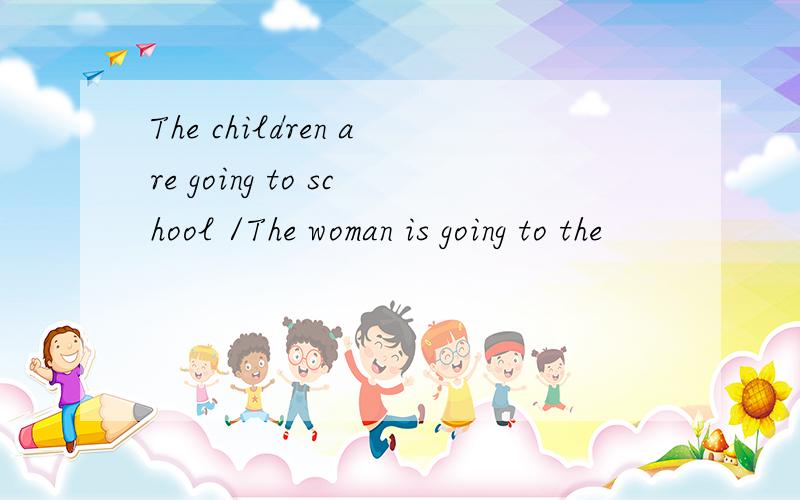The children are going to school /The woman is going to the
来源:学生作业帮 编辑:大师作文网作业帮 分类:综合作业 时间:2024/11/11 19:58:39
The children are going to school /The woman is going to the post office.怎么一个名词前需要加the

定冠词the与指示代词this,that同源,有"那(这)个"的意思,但较弱,可以和一个名词连用,来表示某个或某些特定的人或东西.
1)特指双方都明白的人或物:
Take the medicine.把药吃了.
2)上文提到过的人或事:
He bought a house.I’ve been to the house.
他买了幢房子.我去过那幢房子.
3)指世上独一物二的事物:
the sun,the sky,the moon,the earth
4)单数名词连用表示一类事物:
如:the dollar 美元;
the fox 狐狸;或与形容词或分词连用,表示一类人:the rich 富人; the living 生者.
5)用在序数词和形容词最高级,及形容词only,very,same等前面:
Where do you live?I live on the second floor.你住在哪?我住在二层.
That’s the very thing I’ve been looking for.那正是我要找的东西.
6)与复数名词连用,指整个群体:
They are the teachers of this school.指全体教师)
They are teachers of this school.(指部分教师)
7)表示所有,相当于物主代词,用在表示身体部位的名词前:
She caught me by the arm..她抓住了我的手臂.
8)用在某些由普通名词构成的国家名称、机关团体、阶级、等专有名词前:
the People’s Republic of China 中华人民共和国
the United States 美国
9)用在表示乐器的名词之前:
She plays the piano.她会弹钢琴.
10) 用在姓氏的复数名词之前,表示一家人:
the Greens 格林一家人 (或格林夫妇)
11) 用在惯用语中:
in the day,in the morning (afternoon,evening),the day after tomorrow
the day before yesterday,the next morning,
in the sky (water,field,country)
in the dark,in the rain,in the distance,
in the middle (of),in the end,
on the whole,by the way,go to the theatre
1)特指双方都明白的人或物:
Take the medicine.把药吃了.
2)上文提到过的人或事:
He bought a house.I’ve been to the house.
他买了幢房子.我去过那幢房子.
3)指世上独一物二的事物:
the sun,the sky,the moon,the earth
4)单数名词连用表示一类事物:
如:the dollar 美元;
the fox 狐狸;或与形容词或分词连用,表示一类人:the rich 富人; the living 生者.
5)用在序数词和形容词最高级,及形容词only,very,same等前面:
Where do you live?I live on the second floor.你住在哪?我住在二层.
That’s the very thing I’ve been looking for.那正是我要找的东西.
6)与复数名词连用,指整个群体:
They are the teachers of this school.指全体教师)
They are teachers of this school.(指部分教师)
7)表示所有,相当于物主代词,用在表示身体部位的名词前:
She caught me by the arm..她抓住了我的手臂.
8)用在某些由普通名词构成的国家名称、机关团体、阶级、等专有名词前:
the People’s Republic of China 中华人民共和国
the United States 美国
9)用在表示乐器的名词之前:
She plays the piano.她会弹钢琴.
10) 用在姓氏的复数名词之前,表示一家人:
the Greens 格林一家人 (或格林夫妇)
11) 用在惯用语中:
in the day,in the morning (afternoon,evening),the day after tomorrow
the day before yesterday,the next morning,
in the sky (water,field,country)
in the dark,in the rain,in the distance,
in the middle (of),in the end,
on the whole,by the way,go to the theatre
The children are going to school /The woman is going to the
Are you going to ( )the school visit?
the children are going to have .对the children 提问 是who IS goi
going.to.the.are.children.park.the连词成句,
The children are going to the park.(用Who提问)-----------------
he is going to the school.对 the school提问
she is last woman is going to know the news
The children()going to ()the zoo.
the children are going to school on foot.对划线部分提问
—Where are the children?The dinner is going to be completely
The children are going to an experiment.(改为否定句)
some parents are going to study the subjects their children